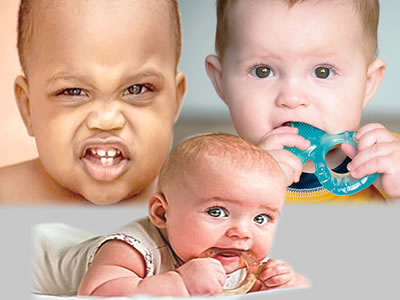When Rose Akinbiyi’s baby, Jaye, would not eat or stop crying one night, she thought her newborn had a stomach upset.
“She was burning hot, so I removed her clothes and gave her more pain medication. But her condition grew worse,” said 30-year-old Akinbiyi.
By the time she reached the hospital the next morning, the baby’s temperature was very high. Tests later showed the one-month-old baby had malaria.
The diagnosis of malaria shocked Akinbiyi. Like many people, she assumed her one-month-old baby would be protected from the disease by maternal immunity.
Malaria, a life-threatening disease transmitted by infected mosquitoes, poses a significant risk to people of all ages. Interestingly, newborns and infants are often wrongly assumed to have immunity through their mothers.
In endemic areas, even a one-month-old baby can contract malaria. Neonatal malaria, although often underdiagnosed, is a significant health concern. It can occur due to transmission from the mother through the placenta just before or during delivery or through fresh infections, such as mosquito bites or blood transfusions.
Congenital malaria is a recognised phenomenon, with studies indicating that a significant percentage of neonatal malaria cases arise from mothers’ infections during pregnancy. Symptoms in newborns and infants often mimic those of sepsis, including fever, irritability, failure to breastfeed, enlargement of the spleen, and severe anaemia.
Professor Adebola Orimadegun, a consultant paediatrician and director of the Institute of Child Health at the University of Ibadan, said anybody can have malaria, including a baby that is less than 6 months old, although it occurs less frequently in this age group compared with older children in malaria-endemic regions.
According to him, mothers who live in malaria-endemic regions have built up sufficient immunity over the years that they can pass enough to their babies; therefore, those babies are relatively protected compared with older children.
“When mothers suffered from malaria in pregnancy, their babies may also have malaria as soon as they are born, what is called congenital malaria,” he added.
Additionally, there is increasing evidence that malaria exposure in the womb may alter the risk of malaria and non-malarial febrile infections in babyhood, with studies showing that offspring of women who experience malaria in pregnancy are at increased risk of malaria themselves.
Professor Chris Aimakhu, a consultant obstetric and gynaecologist, at University College Hospital (UCH), Ibadan, said malaria in pregnancy is dangerous because it can lead to miscarriage, stillbirth, low birthweight, and prematurity, as well as other congenital infections and abnormalities, and early newborn death.
According to him, “infections, in general, can cause low birth weight if they do not kill the baby. In its extreme, the infection can kill the baby or impede growth. Of course, the chances of survival of a baby born small for its age are reduced.
“Also, a baby who contracts malaria from the womb tends to have a fever regularly. Such babies may also have feeding difficulties, while they may also develop jaundice or anaemia.”
If malaria is left untreated during pregnancy, infected red blood cells gather in the placenta and block the crucial exchange of nutrients from the mother to the baby inside the womb. The result can be a miscarriage, stillbirth, or low birth weight.
Professor Orimadegun declared that when a mother suffers repeated and serious malaria attacks during pregnancy, the practice is to take a sample of the placenta blood at delivery and check for malaria parasites to quickly rule out the possibility of congenital malaria in her newborn.
He stated that to prevent malaria from affecting the mother and her unborn baby, a pregnant woman is supposed to take at least two doses of Sulphadoxine Pyrimethamine (SP) at one-month intervals.
Sulphadoxine Pyrimethamine works by providing both treatment and prophylaxis. First, it intermittently clears malaria parasites from the placenta. Second, the slow elimination of the drug from the body results in its persistence, which prevents new malaria infections.
The don said it could be worrisome when babies are born with malaria because there wouldn’t be any peculiar symptoms.
“The child will feel sick or feel unwell, probably not suck well, and sometimes vomit, just like any other child. But what is worrisome is that it could be more severe because their blood breaks down, and they can have anaemia,” he explained.
Experts declared that the increasing incidence of neonatal malaria, once considered rare, highlights the need for heightened awareness and diagnostic vigilance among healthcare providers in malaria-endemic regions. This is particularly important as many cases may go undiagnosed due to misconceptions about the disease’s prevalence in this vulnerable population.
In 2023, researchers in the Journal of Family Medicine and Primary Care identified several key misconceptions regarding neonatal malaria that contribute to its underdiagnosis and mismanagement. This includes the condition’s rarity, low suspicion index, underestimation of burden, and neglect of the disease.
A primary misconception is that neonatal malaria is a rare condition, especially in non-endemic areas, leading healthcare providers to overlook the possibility of malaria in newborns, resulting in missed diagnoses and inadequate treatment.
READ ALSO: Nigeria contributes 27% of malaria cases, 31% of deaths globally – Medical expert
WATCH TOP VIDEOS FROM NIGERIAN TRIBUNE TV
- Let’s Talk About SELF-AWARENESS
- Is Your Confidence Mistaken for Pride? Let’s talk about it
- Is Etiquette About Perfection…Or Just Not Being Rude?
- Top Psychologist Reveal 3 Signs You’re Struggling With Imposter Syndrome
- Do You Pick Up Work-Related Calls at Midnight or Never? Let’s Talk About Boundaries






